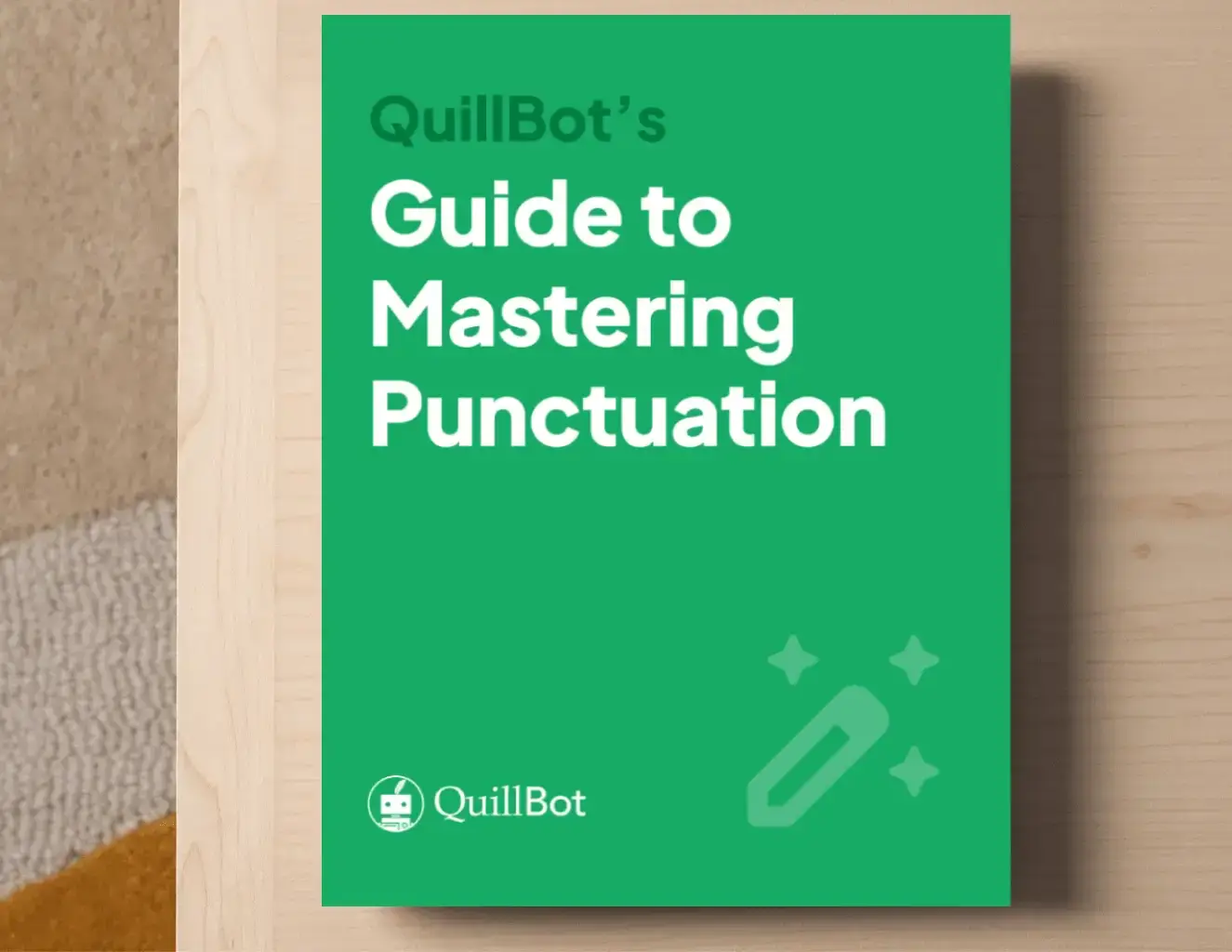Number prefixes are groups of letters at the beginning of a word that denote the quantity of the base word. For example, “bi-” means “two,” and a bicycle has two wheels (whereas a tricycle has three). The prefixes for each number are as follows:
- Uni- or mono-
- Bi- or di-
- Tri-
- Tetra-
- Penta-
- Hexa-
- Hepta-
- Octa-
- Ennea-
- Deca-
Words with number prefixes can be challenging to spell, but the QuillBot Grammar Checker will help you write them correctly.
Read this FAQ: What are number prefixes?
Direct speech is a direct quote of another person’s exact words in the same order and in quotation marks (as opposed to indirect speech/reported speech, which is a form of paraphrasing).
The following examples illustrate the differences between direct speech and indirect speech/reported speech.
- Direct speech: The recruiter asked, “Why do you want to work here?”
- Indirect speech/reported speech: The recruiter asked me why I want to work there.
When you’re writing with direct speech, QuillBot’s free Grammar Checker can help you ensure that the quotation marks and other punctuation are in the right place.
Read this FAQ: What is direct speech?
The most common reporting verbs are “said,” “explained,” “wrote,” and “asked” (e.g., “Dr. Xiu said that I am very healthy”). Reporting verbs can be past tense, like these examples, or simple present tense (e.g., “says” or “writes”).
Use past tense reporting verbs when you’re using direct speech and indirect speech/reported speech for a quote that happened in the past. Use present tense to report a quote that is happening in the present moment (e.g., “Mom says it’s time to go home”).
When you use reporting verbs in your writing, the QuillBot Grammar Checker can help you with correct grammar and punctuation.
Read this FAQ: What are the most common reporting verbs?
Some of the most common compound words include the following:
Compound words can be closed (one word with no hyphen), open (two words), or hyphenated. When you’re writing with compound words, the QuillBot Grammar Checker will ensure that they’re spelled and formatted correctly.
Read this FAQ: What are some common compound words?
Some but not all compound words are nouns. Common compound nouns include “airport,” “grandparent,” “sandbox,” “yard sale,” and “merry-go-round.” Compound words can also be other parts of speech:
Compound words can be tricky because some of them are closed (one word with no hyphen), and others are open (two words) or hyphenated. Luckily, the QuillBot Grammar Checker can help you format compound words correctly.
Read this FAQ: Are all compound words nouns?
Contractions are sometimes too informal for certain types of academic writing (e.g., essays and dissertations). In workplace writing and job applications (e.g., cover letters), they’re usually fine in moderation.
For example, “I am writing to apply for … ” sounds stilted, whereas “I’m writing to apply for … ” sounds more concise and natural.
When you do need to avoid contractions, the QuillBot Paraphraser can instantly show you formal alternatives.
Read this FAQ: Can you use contractions in formal writing?
The correct phrase is could have, not could of. People sometimes accidentally write “could of” because it sounds like the contraction “could’ve.” However, the preposition “of” never goes after the modal verb “could.”
“Could have” and “could’ve” are both correct ways to show that something was once possible but didn’t happen (e.g., “We could have/could’ve gone to the beach last year, but we went to the mountains instead”).
To avoid mistakes like “could of,” “would of,” “should of,” etc, you can run any piece of writing through the QuillBot Grammar Checker. It will instantly spot these errors and show you what to write instead.
Read this FAQ: Is it could of or could have?
It can be where, were, or we’re depending on the context.
- Use the interrogative “where” when you want to ask a question about location (e.g., “Where is Carmen going for vacation?”
- Use the verb “were” when you need the past tense form of “be” (e.g., “The dogs were barking loudly yesterday”).
- “We’re” is a contraction for “we are” (e.g., “We’re making our own bouquets for the anniversary party”).
These three words sound alike, so it’s easy to get them confused. Luckily, QuillBot’s free Grammar Checker can help you keep them straight.
Read this FAQ: Is it where, were, or we’re?
The word until is spelled with one “l.”
Have you tried QuillBot’s free Grammar Checker? It will help you avoid common typos like “untill” instead of “until.”
Read this FAQ: How do you spell until correctly?
When until refers to a day or date, the meaning can be ambiguous because “until” refers to a particular point in that day or date rather than the whole day or date.
When people say “I’m out of office until Monday/May 2,” they generally mean that the state of “being out of office” will continue up to and end at the beginning of work, school, etc. on Monday (e.g., at 9 a.m. when they start work on Monday), so they will be back at work and available on Monday/May 2.
If they say “I’m here/available/working until Wednesday,” they generally mean that the state of “being here/available/working” will continue up to the end of work, school, etc. on Wednesday (e.g., 5 p.m. on Wednesday), so they will still be here/available/working on Wednesday.
To avoid confusion, you can specify the “end point” of the state or situation (e.g., “I’m out of office until 9 a.m. on May 2,” or “I’m available until 5 p.m. on Wednesday”).
Have you tried QuillBot’s free Grammar Checker? You can use it to check your out of office email messages.
Read this FAQ: Does until include that day?
